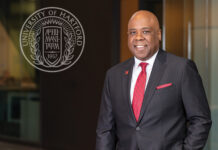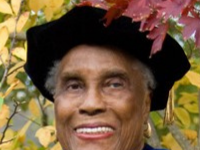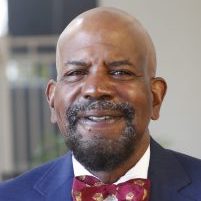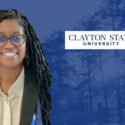
 Cato T. Laurencin, director of the Institute for Regenerative Engineering at the University of Connecticut Health Center has focused his research in recent years on creating a biocompatible and degradable synthetic scaffold that can be surgically implanted and foster the regeneration of ligament tissue. The work is aimed at developing a technique that would revolutionize the recovery of patients who tear their anterior cruciate ligament (ACL), one of the more common knee injuries.
Cato T. Laurencin, director of the Institute for Regenerative Engineering at the University of Connecticut Health Center has focused his research in recent years on creating a biocompatible and degradable synthetic scaffold that can be surgically implanted and foster the regeneration of ligament tissue. The work is aimed at developing a technique that would revolutionize the recovery of patients who tear their anterior cruciate ligament (ACL), one of the more common knee injuries.
For this breakthrough research, Dr. Laurentin’s work was included among the “100 Scientific Discoveries That Changed the World” in a special edition of National Geographic magazine. The article states, “The burgeoning field of regenerative medicine seeks nothing less than to provide patients with replacement body parts.”
Dr. Laurencin is a 1980 graduate of Princeton University. In 1987 he earned a Ph.D. in biochemical engineering/biotechnology from MIT and graduated magna cum laude from Harvard Medical School. Last summer, he stepped down as head of the University of Connecticut Health Center and dean of the University of Connecticut Medical School so he could devote more time to his research. Before coming to the University of Connecticut, he was chair of the department of orthopedics at the University of Virginia.









